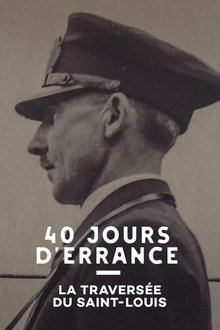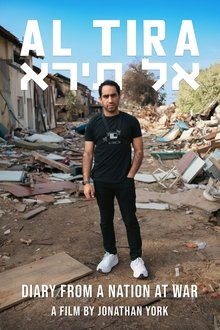The flat on the third floor of a Bauhaus building in Tel Aviv was where my grandparents lived since they immigrated to Palestine in the 1930s. Were it not for the view from the windows, one might have thought that the flat was in Berlin. When my grandmother passed away at the age of 98 we were called to the flat to clear out what was left. Objects, pictures, letters and documents awaited us, revealing traces of a troubled and unknown past. The film begins with the emptying out of a flat and develops into a riveting adventure, involving unexpected national interests, a friendship that crosses enemy lines, and deeply repressed family emotions. And even reveals some secrets that should have probably remained untold...
Related Movies
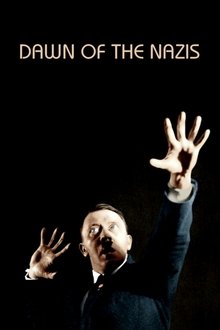
Dawn of the Nazis (2017)
How Germany was when its people entered the nightmare of World War II? Despair and fear lead a hungry population to follow the chilling call of just one man to world domination. A real-life horror story, an ominous tale of violence and deception, which takes place from 1919 to 1934. (Entirely made up of restored, colorized archival footage.)
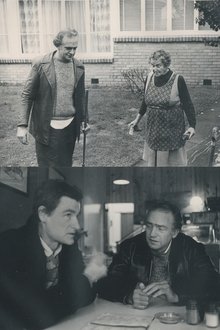
Kelvin and His Friends (1988)
A closely observed portrait of a single man in his 40's who lives in St. Kilda. Although he has none of the trappings of conventional existence, Kelvin's obsessive interest in born again Christianity, physical culture and recent German/Jewish history has given him a way of making sense of the world and led him to a number of people, friends through whom we see something of his life and beliefs.
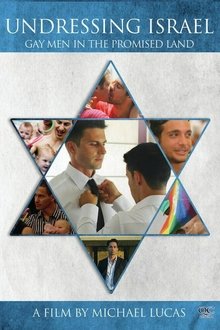
Undressing Israel: Gay Men in the Promised Land (2013)
When many people think of Israel, it is often in terms of modern war or ancient religion. But there is much more to the Jewish state then missiles and prayers. In his debut as a documentary filmmaker, adult-film entrepreneur and political columnist Michael Lucas examines a side of Israel that is too often overlooked: its thriving gay community. Undressing Israel features interviews with a diverse range of local men, including a gay member of Israel's parliament, a trainer who served openly in the army, a young Arab-Israeli journalist, and a pair of dads raising their kids. Lucas also visits Tel Aviv's vibrant nightlife scene-and a same-sex wedding-in this guided tour to a country that emerged as a pioneer for gay integration and equality.
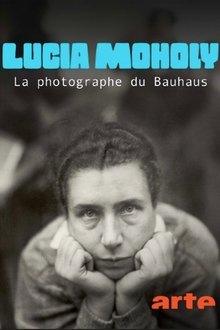
Lucia Moholy, la photographe du Bauhaus (2025)
As a Bauhaus photographer, Lucia Moholy (1894-1989) was a pioneer of New Objectivity. Her husband László Moholy-Nagy was appointed to the Bauhaus in 1923. They worked there together and László became famous as the inventor of the photogram, a photo without film. Lucia's contribution to this only became known later. When the Czech-born Jew was forced to leave Germany in 1933 after the Nazis seized power, she was unable to take her most important possession, her glass negatives, with her. She struggled to keep her head above water in London and worked for the British secret service on the microfilming of valuable documents. With her vision of microfilm as freely accessible information for all, she is now regarded as a pioneer of the Internet. After the war, Lucia set out in search of her glass negatives.
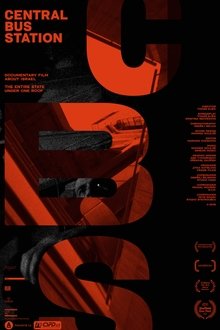
Central Bus Station (2019)
The architects' plans for Central Bus Station to swallow visitors has turned into an endless maze of corridors. Once a gift to the citizens of Tel Aviv now serves to the immigrants. Yonathan has been a guide there for 17 years and is able to show the other side of the station's significance to those who walk with him. Yonathan knows that the purpose of going down to the building is to find not only himself, but also a society that harbours its values, protects its original traditions and wants to defend its home.

Temporary Identity (2024)
What does it mean to belong to a place, a country? In a south Tel Aviv elementary school, that question is addressed head-on by a fourth-grade class and their teacher. The children are asylum seekers whose families mostly do not have a legal status in Israel, yet learn, sing and play in Hebrew all the while examining their identity and sense of belonging.
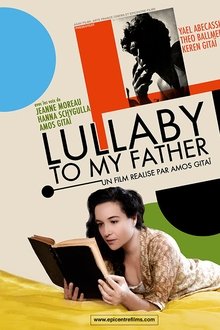
Lullaby to my Father (2012)
The film intertwines historical events and intimate memories. I observe how architecture represents the transformations of society and those who give form to this architecture. We follow the journey of Munio, my father, born in 1909 in Silesia, Poland, the son of a tenant farmer of a Prussian junker. At the age of 18, Munio goes to Berlin and Dessau to meet Walter Gropius, Kandinsky and Paul Klee at the Bauhaus. In 1933, the Bauhaus was closed by the Nazis, who accused Munio of treason against the German people. Munio was imprisoned, then deported to Basel. He left for Palestine. Upon his arrival in Haifa, he began a career as an architect and adapted European modernist principles to the Middle East.
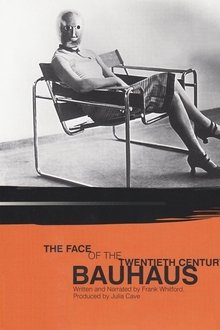
Bauhaus: The Face of the Twentieth Century (1994)
Bauhaus - The Face of the 20th Century, written and narrated by Frank Whitford, is an art documentary depicting the visual science generated from the outpouring of avant-garde ideas of this innovative educational undertaking.
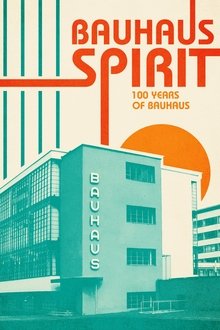
Bauhaus Spirit: 100 Years of Bauhaus (2018)
Founded in 1919 by Walter Gropius, Bauhaus was supposed to unite sculpture, painting, design and architecture into a single combined constructive discipline. It is a synthesis of liberated imagination and stringent structure; cross-medial concepts that embellish and enrich our existence, illumination and clarity, order and playfulness. But Bauhaus was never just an artistic experiment. Confronted with the social conditions of that particular time, as well as the experience of WWI, the movement concerned itself with the political and social connotations of design from the very outset. Hence, Bauhaus history is not just the history of art, but also the history of an era that stretches from the early 20th century to the modern day.
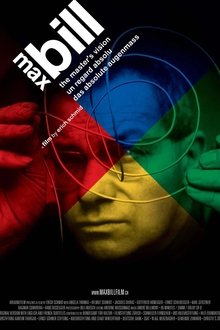
Max Bill: The Master's Vision (2008)
The film about Max Bill (1908-1994) moves between the dynamic fields of art, aesthetics and politics. Max Bill was probably the most important swiss artist of the 20th century and the most famous student to come out of the legendary Bauhaus in Dessau. He was an ardent anti-fascist and all his avant-garde work as an artist, sculptor, architect and typographer showed a social responsibility and environmental awareness right through his life. His views have become incredibly topical.
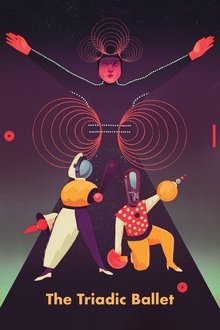
The Triadic Ballet (1970)
A film in three parts after Oskar Schlemmer's Triadische Ballett (Triadic Ballet).
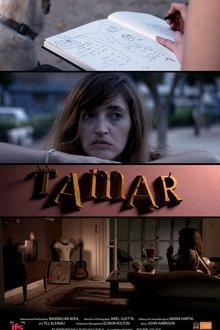
Tamar (2018)
Tamar, a 33-year-old Tel Aviv comics artist, watches passersby, listens to their conversations and translates her impressions into comics with an ironic expression. She peels off the mask from a society, in the eye of the storm, that claims to be liberal and in which everyone has an opinion about everything. Secure between her four walls, she touches the darkest spots of her life- a bomb attack, a failed marriage, coping with depression. A young, modern woman in today's Israel.
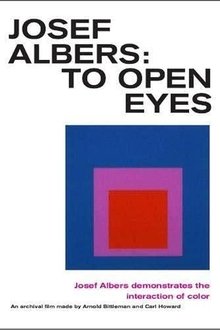
To Open Eyes (NaN)
The genesis of To Open Eyes: A Film on Josef Albers developed from Arnold Bittleman's appreciation for Albers while Bittleman was a student at Yale University in the 1960s. Wanting to preserve Albers’s teaching method—learning by doing—Bittleman set out with filmmaker and editor Carl Howard to make a visual record of Albers teaching students how to see and use color as a visual grammar. The film includes archival footage of Josef Albers at home in conversation with Bittleman, as well as footage from Black Mountain College and Yale University.
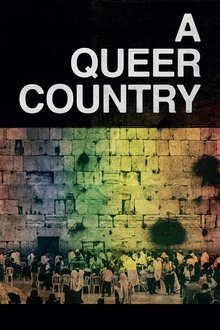
A Queer Country (2016)
Israel is governed by Orthodox civil law and yet hosts the world's biggest gay pride. Is this a cynical marketing ploy or a political awakening?

Keepers of Hope (2000)
"For the sake of the neighborhood, for the sake of the children of the neighborhood. lets go Bnei Yehuda ." There are films that cannot be forgotten, that have become the soundtrack of Israeli football. One of them is "Shomrim Al H'tikva", which accompanied Bnei Yehuda in the survival campaign in 2000. Shia Feigenbaum, Yossi Medar, Hezi Shirazi and others on a heroic journey in the Hatikva neighborhood. 40 minutes of a cult film, which every Israeli football fan must see.
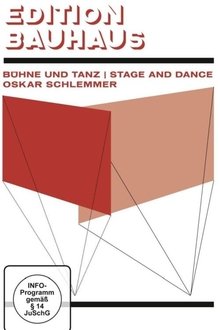
Gerhard Bohner: Dancer and Choreographer (1984)
Short documentary on the reconstruction of the Bauhaus dances of Oskar Schlemmer by Gerhard Bohner.

Man and Mask, Oskar Schlemmer and the Bauhaus Stage (1969)
Documentary on the design and choreography of Oskar Schlemmer (1888-1943), an artist and teacher associated with the Bauhaus. After a discussion of his artistic philosophy and goals, illustrated by his drawings, reconstructions of his choreographic works are seen in action, each with a brief introduction.
